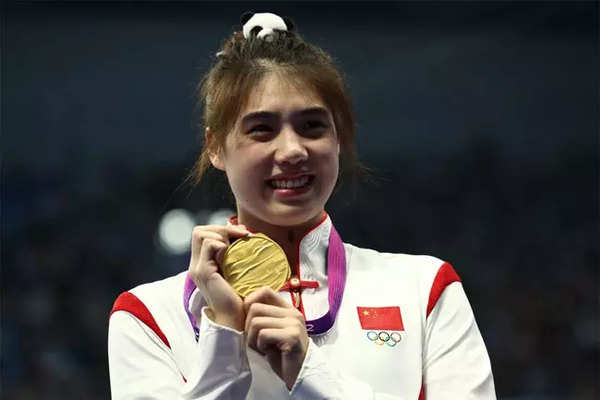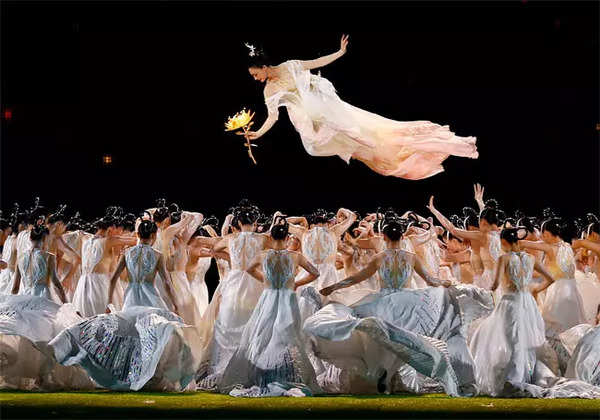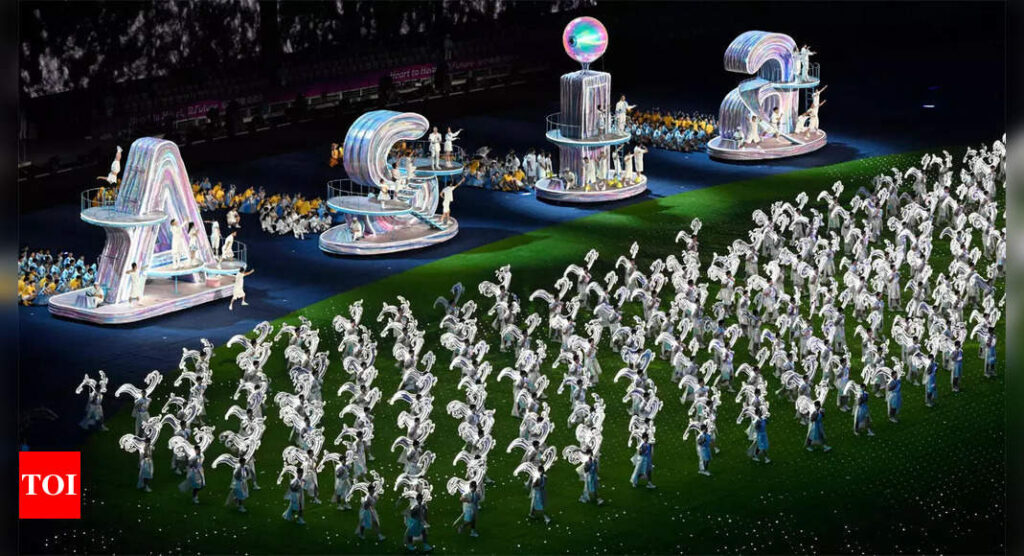[ad_1]
The Games started with China presenting the event as the ‘smart’ and ‘green’ edition of the Asiad, with technology and environmental awareness as the central theme, until the host nation flexed its muscles on the field to be heads and shoulders above the rest.
China’s gold-medal count alone stood at 201, which is 149 more than the second-placed Japan’s 52 gold. It was the 11th consecutive edition where China finished on top of the medals tally, improving on their previous best of 199 gold medals at the 2010 edition in Guangzhou.
Home team’s swimmer Zhang Yufei was the most successful athlete of the Games with six gold medals.

(Reuters photo)
But where China also set the benchmark higher was in terms of hospitality, as the hosts rolled out a red carpet for not just the athletes, but also everyone involved with the Games at various fronts. As part of that, the concept of Media Village for the accredited press will take some doing to be matched by any of the subsequent host nations, starting with Aichi-Nagoya, Japan, in 2026.
The Chinese hospitality was undoubtedly led by its army of volunteers, who have also raised the standards for anyone who has volunteering at a multi-disciplinary event on his or her wishlist. If there is one aspect of the Games that’s a hands-down winner in Hangzhou, it’s the volunteers — every step of the way.
For India it was a landmark edition as well – the country’s best ever with a tally of 28 gold, 38 silver and 41 gold and the first occasion when an Indian contingent to the Asian Games crossed the tally of 100 medals. The final count stood at 107, giving India the fourth position on the tally by gold-medal count.
Among the few occasions where the Indian sentiments were dealt a blow was during the track and field events, especially when Neeraj Chopra’s first throw wasn’t registered. The reasons given were related to confusion and technical glitch, but smelt of foul play. Had it cost Neeraj a gold medal, the controversy may have taken a serious turn. But it got somewhat downplayed in the jubilation of Neeraj’s successful defence of his Jakarta 2018 gold and Kishore Jena finishing second for a silver.
Similar scenes were witnessed in the 100m women’s hurdles event involving Jyothi Yarraji over a foul start and during the men’s kabaddi final between India and Iran, where both teams took turns to sit in protest over contentious calls and a heated debate over new rules vs old rules.
The Grand Canal in Hangzhou
India won in the end, and it once again doused the fire that saw the kabaddi final being interrupted amid ugly scenes for more than an hour.
Archers Jyothi Surekha Vennam and Ojas Deotale’s respective hat-trick of gold medals shone the brightest for India, while shooters Aishwary Pratap Singh Tomar and Esha Singh won four medals each.
The Closing Ceremony on Sunday showcased the action-packed highlights from the Games, which saw 12,407 athletes, 45 nations and 40 sports – as the flag was handed over to the next host Japan.

(Reuters photo)
[ad_2]
Source link










More Stories
We can’t wait to face India in the final: Pat Cummins | Cricket News
Railways plans 3,000 additional trains in next 4-5 years to minimise number of waitlisted tickets | India News
Faridabad: Man dies after ‘falling from hotel room window’ while partying with friends